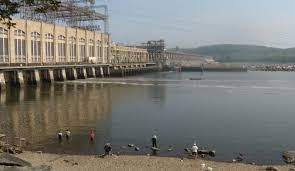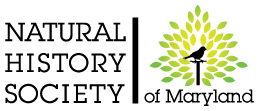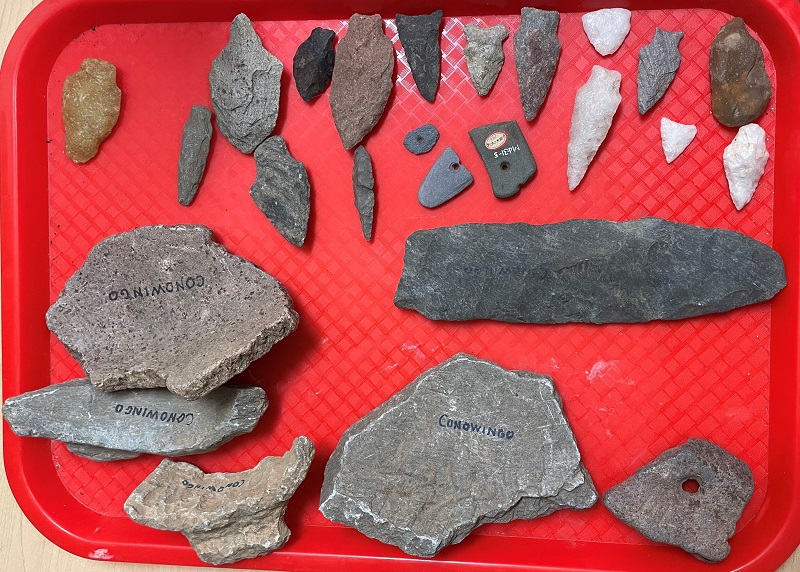In Cecil County, Maryland, there is a well-known archaeological site named Conowingo (18CE14) located just downstream from the Conowingo Dam on the Susquehanna River. It was first identified in 1905 by Talbot D. Jones, an avocational archaeologist, and has been excavated by other avocational archaeologists including Richard Stearns, who served as the archaeology curator for the Natural History Society of Maryland for over 30 years.
In 1981 and 1982, the site was excavated by the Archaeological Society of Maryland. Their findings have become the definition of the site: a Late Archaic (3750-1250 BC) to Late Woodland (AD 950-1600) seasonal base camp supported by a series of exploitive procurement camps supplying non-local goods.
Dr. Katherine Sterner and Calliete Rose from Towson University examined the artifacts collected by Richard Stearns both before and after the dam was constructed in 1928. What they found is rewriting what we know about the site. Join us to see how history as we know it isn’t always the whole story.
Dr. Katherine Sterner is an Assistant Professor of Anthropology at Towson University. She received her Ph.D. from University of Wisconsin-Milwaukee and spent several years as a principal investigator for UW-Milwaukee Cultural Resource Management before joining the faculty at Towson University. Dr. Sterner studies stone tool production and use, communities of practice, and the transition from hunting and gathering to agriculture in the Eastern Woodlands of North America. She teaches courses on Paleoanthropology, Archaeological Methods and Theory, GIS in Anthropology, Experimental Archaeology, Geoarchaeology, and an Archaeological Field School. Dr. Sterner is also the Collections Manager and a member of the Board of Trustees for the Natural History Society of Maryland.
Natural History Society of Maryland’s Archaeology Club promotes the value of archaeology in Baltimore City, Baltimore County, and surrounding areas. The goal of the Archaeology Club is to educate citizenry in the ethics, methods, and artifact preservation methods of archaeology and how archaeology can be used to document, discover, and promote local history. The Archaeology Club is inclusive to all persons who have an interest in archaeology.
Normally, Club meetings, trips and other activities are open solely to Club Members. However, during COVID, NHSM is opening up this meeting to all, though we are asking for a $5 donation from non-members. If you are an archaeology enthusiast, please consider joining us. You must be a member of NHSM to join any of its clubs. Follow this link to learn more: https://www.marylandnature.org/club-membership/
The Natural History Society of Maryland is a volunteer-led non-profit organization, so the fee you pay will go directly to support the programs, the nature collections, and the building that make this kind of nature education possible.




